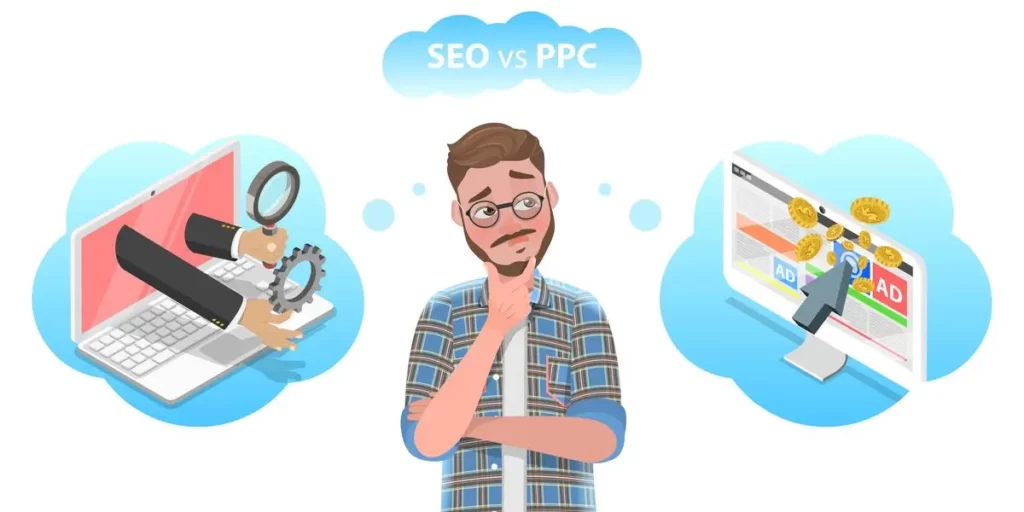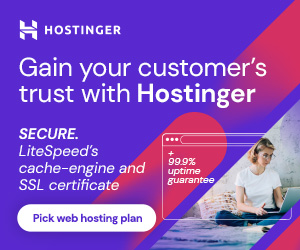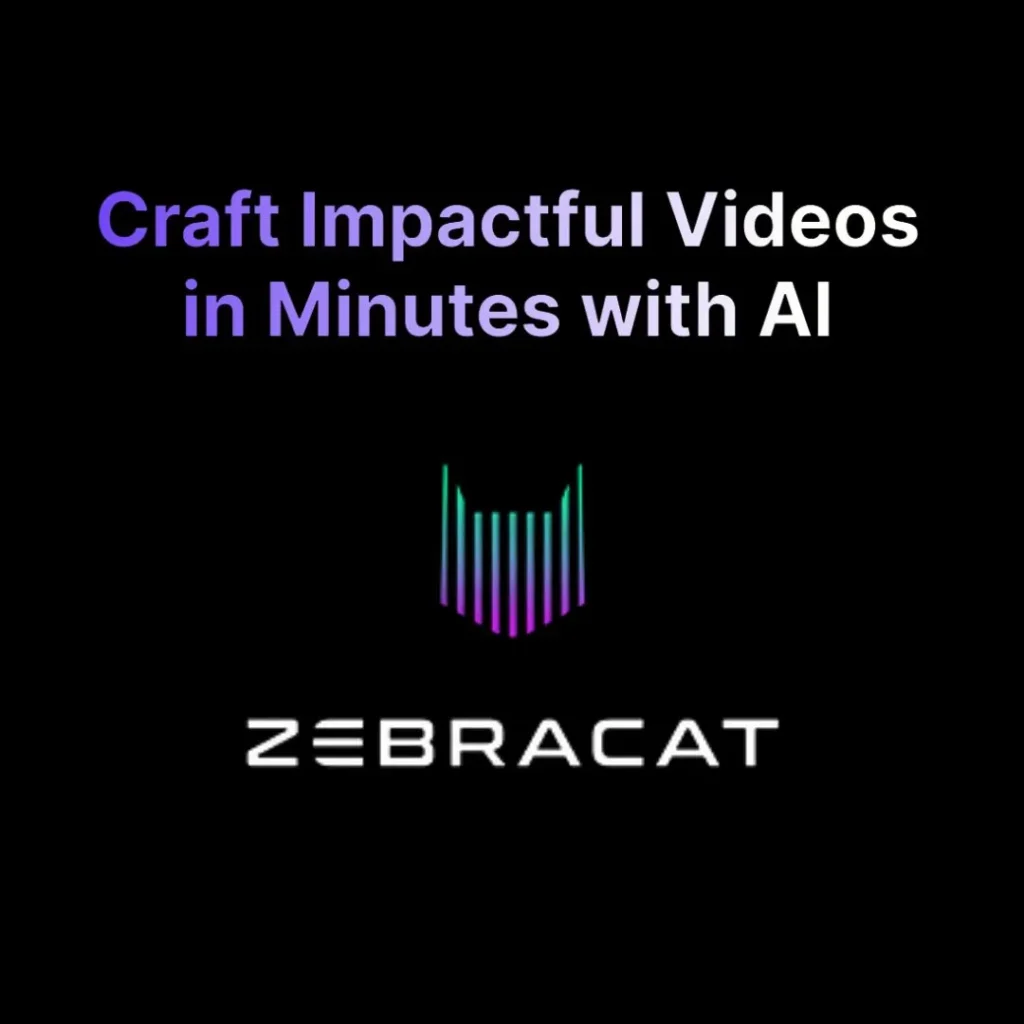PPC vs SEO — that is the dilemma every business owner or marketer face when trying to make a viable decision for their growth campaign.
When it comes to digital marketing, businesses have two primary options: Pay-Per-click (PPC) advertising and Search Engine Optimization (SEO).
When it comes to digital marketing, businesses have two primary options: Pay-Per-click (PPC) advertising and Search Engine Optimization (SEO).

While both have their Pros and Cons, determining which is best for your business depends on your unique goals, budget, and audience.
In this article, we will explore the differences between PPC and SEO and help you decide which approach is best for your business.
The Basics of PPC vs SEO
Before we dive into the pros and cons of each method, let's first define what SEO and PPC are.
What is PPC Advertising?
PPC advertising is a digital marketing strategy that involves paying for ads to appear on search engine results pages (SERPs).
Advertisers bid on keywords relevant to their products or services, and their ads are displayed to users who search for those keywords. Advertisers only pay when someone clicks on their ad, hence the name "pay-per-click."
PPC advertising is typically associated with Google Ads (formerly known as Google AdWords), but other search engines, such as Bing, Yahoo, and even social media platforms, offer similar services.
What is SEO?
SEO, on the other hand, is a digital marketing strategy that involves optimizing a website's content and structure to rank higher on SERPs.
Unlike PPC, SEO doesn't involve paying for clicks. Instead, businesses focus on creating high-quality content and building backlinks to their site to increase their visibility and traffic.
SEO is a long-term strategy that requires patience, consistency, and a deep understanding of search engine algorithms.
It involves on-page optimization (e.g., optimizing page titles, meta descriptions, and content) and off-page optimization (e.g., building backlinks from other reputable sites).
Pros and Cons - PPC vs SEO
Table of Contents
TogglePros of SEO (Search Engine Optimization)
Increased Visibility
The primary benefit of SEO is increased visibility. When your website ranks higher in SERPs, you're more likely to be seen by potential customers.
This increased visibility can lead to more traffic, leads, and sales, making SEO an effective strategy for businesses that want to grow their online presence.
Cost-Effective
SEO can be a cost-effective way to generate traffic and leads.
While there are some upfront costs associated with SEO, such as creating high-quality content and optimizing your website, once you've established your strategy, you can generate sustainable traffic without paying for ads or other forms of promotion.
The primary benefit of SEO is increased visibility. When your website ranks higher in SERPs, you're more likely to be seen by potential customers.
Builds Trust and Credibility
Ranking high in SERPs can also help build trust and credibility with your audience.
When your website appears on the first page of search results, potential customers are more likely to view your business as an authority in your industry.
This increased trust and credibility can lead to more conversions and long-term customer loyalty.
Long-Term Strategy
Unlike PPC advertising, which provides immediate results but only as long as you pay for ads, SEO is a long-term strategy that can generate sustainable traffic and leads over time.
While it may take months to see significant results, once you've established your strategy, you can continue to generate traffic and leads without additional investment.
Targets Relevant Traffic
SEO allows you to target specific keywords and phrases that are relevant to your business and audience.
This targeted approach ensures that the traffic you generate is more likely to convert into leads and sales.
Additionally, SEO allows you to create high-quality content that provides value to your audience, further increasing the likelihood of conversions.
Measurable Results
Finally, SEO provides measurable results that allow you to track your progress and measure your ROI.
Tools like Google Analytics and Google Search Console allow you to track your website's traffic, rankings, and other metrics, providing valuable insights into the effectiveness of your SEO strategy.
This data can help you refine your approach and ensure that you're getting the most out of your investment.
Cons of SEO (Search Engine Optimization)
Slow Results
One of the most significant drawbacks of SEO is that it takes time to see results.
Unlike PPC advertising, which can generate immediate traffic and leads, SEO is a long-term strategy that requires patience and persistence.
This delay can be frustrating for businesses that need to see a return on their investment quickly.
Complexity
SEO is a complex and ever-changing field. Search engine algorithms are constantly evolving, which can make it challenging for businesses to keep up with the latest trends and techniques.
Search Engine Optimization requires a deep understanding of technical SEO, content marketing, and link building, and it can be overwhelming for businesses that don’t have experience in these areas.
Limited Control
Unlike PPC advertising, which allows businesses to have complete control over their ads and landing pages, SEO is subject to the whims of search engine algorithms.
Even if you follow all of the best practices and create high-quality content, there's no guarantee that you'll rank on the first page of SERPs.
Search engines have their criteria for ranking pages, and these criteria are continually changing. This lack of control can be frustrating for businesses that want to see immediate results.
Competitive
SEO is a highly competitive field, and ranking on the first page of SERPs can be challenging, depending on your industry and keywords.
Larger companies with more significant budgets and resources can often dominate the top positions, making it difficult for smaller businesses to compete.
Additionally, there are many black hat SEO tactics that businesses can use to rank higher quickly, but these tactics can result in penalties from search engines, which can harm your reputation and visibility.
Inconsistency
Finally, SEO results can be inconsistent. Even if you follow all of the best practices and create high-quality content, your rankings can fluctuate over time.
This inconsistency can make it challenging to track your progress and measure your ROI accurately.
Additionally, search engine algorithms are continually changing, which means that even if you rank high now, you may not in the future.
Pros of PPC Advertising
Immediate Results
The primary benefit of PPC is immediate results. Unlike SEO, which can take months or even years to see significant results, PPC provides immediate visibility and traffic.
Once you create and launch your ad campaign, you can start generating traffic and leads right away.
Targeted Advertising
PPC allows you to target specific keywords and demographics, ensuring that your ads are seen by the right people at the right time.
This targeted approach can increase the likelihood of conversions and sales, making PPC a cost-effective strategy for businesses that want to maximize their ROI.
Measurable Results
Like SEO, PPC provides measurable results that allow you to track your progress and measure your ROI.
Tools like Google Ads and Bing Ads allow you to track your ad performance, including clicks, impressions, and conversions, providing valuable insights into the effectiveness of your ad campaigns.
This data can help you refine your approach and ensure that you're getting the most out of your investment.
Flexibility
PPC offers a high degree of flexibility, allowing you to adjust your ad campaigns based on your goals and budget.
For example, you can increase or decrease your daily ad spend, adjust your targeting parameters, and create different types of ads to test which ones perform best.
This flexibility can help you optimize your ad campaigns and generate the best possible results.
Brand Awareness
PPC can also help increase brand awareness by ensuring that your ads are seen by a large number of people.
Even if someone doesn't click on your ad, they may still see your brand name and logo, increasing brand recognition and recall.
This increased brand awareness can lead to more traffic, leads, and sales over time.
No Algorithm Updates
Unlike SEO, which is subject to frequent algorithm updates that can impact your rankings, PPC is not affected by changes to search engine algorithms.
This means that you can continue to generate traffic and leads even if search algorithms change.
This increased brand awareness can lead to more traffic, leads, and sales over time.
Cons of PPC Advertising
High Costs
One of the biggest drawbacks of PPC is the cost. PPC advertising can be expensive, especially for highly competitive keywords and industries.
Depending on the platform and keyword, the cost per click (CPC) can range from a few cents to hundreds of dollars.
This high cost can make it difficult for small businesses or those with limited budgets to compete with larger companies.
Ad Blindness
Over time, users can become "blind" to ads and may ignore them altogether. This means that even if your ad appears at the top of the search results, it may not be seen or clicked on by users.
This can result in wasted ad spend and lower ROI.
Limited Long-Term Benefits
Unlike SEO, which can provide long-term benefits and a sustained flow of traffic, PPC only provides traffic and leads as long as you continue to pay for it.
This means that if you stop your ad campaigns, your traffic and leads will disappear, limiting the long-term benefits of PPC.
Need for Constant Optimization
PPC requires constant optimization and monitoring to ensure that your ads are performing at their best.
This includes adjusting your targeting, ad copy, and bidding strategies to maximize your ROI.
This can be time-consuming and require a deep understanding of the ad platform and industry.
Competition
PPC is a highly competitive field, and businesses may struggle to stand out in crowded markets.
Large companies with large budgets can often outbid smaller businesses, making it difficult to generate traffic and leads.
Click Fraud
Another potential issue with PPC is click fraud, which occurs when individuals or bots click on your ads without any intention of making a purchase or engaging with your business.
Click fraud can waste ad spend and lower your ROI, making it essential to monitor your ad campaigns for any suspicious activity.
Which is one Best for Your Business? - PPC vs SEO
Determining which marketing method is best for your business depends on several factors.
If you're looking for quick results and have a significant budget, PPC may be the way to go. However, if you're willing to invest time and effort in a long-term strategy, SEO can produce sustainable results over time.
Ultimately, the best approach is to use a combination of both SEO and PPC to maximize your results.
By using SEO to generate organic traffic and PPC to target specific audiences and generate quick results, you can achieve the best of both worlds.
Conclusion
In conclusion, determining which marketing method is best for your business depends on your unique goals, budget, and audience.
While both SEO and PPC have their advantages and disadvantages, using a combination of both can produce the best results for your business.
Whether you're looking for quick results or sustainable, long-term growth, it's important to weigh the pros and cons of each method and create a comprehensive digital marketing strategy that meets your business's unique needs.




Brilliant article
Thank You, Yadav.
Do check out my other blogs.
very informative.. as a business owner these are some very valid points made
Thanks a lot, Divya!
Do check out my other blogs on Digital Marketing.
Very informative article 👍
Thank You Srinath!
Do check out my blogs.